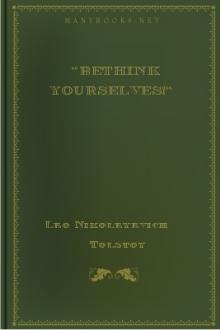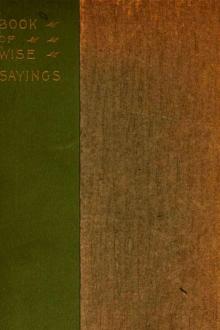Genre Other. Page - 352

ue of a pretended secret marriage between Charles Stuart and Lucy Walter - it was possible that this Monmouth who now proclaimed himself King of England was not even the illegitimate child of the late sovereign. What but ruin and disaster could be the end of this grotesque pretension? How could it be hoped that England would ever swallow such a Perkin? And it was on his behalf, to uphold his fantastic claim, that these West Country clods, led by a few armigerous Whigs, had been seduced into rebellion!
"Quo, quo, scelesti, ruitis?"
He laughed and sighed in one; but the laugh dominated the sigh, for Mr. Blood was unsympathetic, as are most self-sufficient men; and he was very self-sufficient; adversity had taught him so to be. A more tender-hearted man, possessing his vision and his knowledge, might have found cause for tears in the contemplation of these ardent, simple, Nonconformist sheep going forth to the shambles - escorted to the rallying ground on Castle Field by wives and daughters, sweeth

, would have been in the alley by now, forcing a full confession from whoever was skulking in the shadows. Pity the fellow caught by her fierce questions. But Maggie was not Pat, and Pat was far away in Cryneth. She kept walking.
"Maggie Sheffield?" It was a trembling voice, old, and strangely familiar. It was deep with illness.
Maggie turned slowly to see a small, hunched old man step out from the shadows. He stood silhouetted against the fence, and Maggie could not see his face or his features. He stretched out a hand toward her. It was shaking.
"Maggie?" he asked again. He took a step forward and Maggie realized that he was about to fall. She dropped the leafy twigs in her hand and rushed forward, grabbing the old man's arm to steady him. He looked up at her with weary, gray eyes.
"Thank ye, Maggie," he said.
She knew who he was. The relief of recognition flooded her. Those gray eyes had regarded her kindly when she was a child in the Orphan House, and once they had watch

ulled up at the kerb.
The driver leant over the shining apron which partially protected him from the weather, and shouted:
"Is Miss Beale there?"
The girl started in surprise, taking a step toward the cab.
"I am Miss Beale," she said.
"Your editor has sent me for you," said the man briskly.
The editor of the Megaphone had been guilty of many eccentric acts. He had expressed views on her drawing which she shivered to recall. He had aroused her in the middle of the night to sketch dresses at a fancy dress ball, but never before had he done anything so human as to send a taxi for her. Nevertheless, she would not look at the gift cab too closely, and she stepped into the warm interior.
The windows were veiled with the snow and the sleet which had been falling all the time she had been in the theatre. She saw blurred lights flash past, and realised that the taxi was going at a good pace. She rubbed the windows and tried to look out after a while. Then she e

ill at first be astonished at your question. He is a soldier, he has taken the oath, and it is his duty to fulfil the orders of his commanders. If you tell him that war--i.e. the slaughter of men--does not conform to the command, "Thou shalt not kill," he will say: "And how if ours are attacked--For the King--For the Orthodox faith?" (One of them said in answer to my question: "And how if he attacks that which is sacred?" "What do you mean?" I asked. "Why," said he, "the banner.") And if you endeavor to explain to such a soldier that God's Commandment is more important not only than the banner but than anything else in the world, he will become silent, or he will get angry and report you to the authorities.
Ask an officer, a general, why he goes to the war. He will tell you that he is a military man, and that the military are indispensable for the defence of the fatherland. As to murder not conforming to the spirit of the Christian law, this does not trouble him, as either he does not believe

of the slaves, or to march to Mexico--see if I would go"; and yet these very men have each, directly by their allegiance, and so indirectly, at least, by their money, furnished a substitute. The soldier is applauded who refuses to serve in an unjust war by those who do not refuse to sustain the unjust government which makes the war; is applauded by those whose own act and authority he disregards and sets at naught; as if the state were penitent to that degree that it hired one to scourge it while it sinned, but not to that degree that it left off sinning for a moment. Thus, under the name of Order and Civil Government, we are all made at last to pay homage to and support our own meanness. After the first blush of sin comes its indifference; and from immoral it becomes, as it were, unmoral, and not quite unnecessary to that life which we have made.
The broadest and most prevalent error requires the most disinterested virtue to sustain it. The slight reproach to which the virtue of patriotism is commonly

eth headlong.
Sa'dí.
43.
A man who has learnt little grows old like an ox: his flesh grows, but his knowledge does not grow.
Dhammapada.
44.
Unsullied poverty is always happy, while impure wealth brings with it many sorrows.
Chinese.
45.
Both white and black acknowledge women's sway, So much the better and the wiser too, Deeming it most convenient to obey, Or possibly they might their folly rue.[6]
Persian.
[6] Cf. Pope:
Would men but follow what the sex advise, All things would prosper, all the world grow wise.
46.
We are never so much disposed to quarrel with others as when we are dissatisfied with ourselves.
Hazlitt.
47.
No one is more profoundly sad than he who laughs too much.
Richter.
48.
The heaven that rolls around cries aloud to you while it displays its eternal beauties, and yet your eyes are fixed upo

ng of the word "any."
Dick Sunderland Chalk-complexioned MBA who believed that firm managerial bureaucracy was a worth goal, but as president of Sierra On-Line found that hackers didn't think that way.
Gerry Sussman Young MIT hacker branded "loser" because he smoked a pipe and "munged" his programs; later became "winner" by algorithmic magic.
Margot Tommervik With her husband Al, long-haired Margot parlayed her game show winnings into a magazine that deified the Apple Computer.
Tom Swift Terminal Lee Felsenstein's legendary, never-to-be-built computer terminal which would give the user ultimate leave to get his hands on the world.
TX-0 Filled a small room, but in the late fifties this $3 million machine was the world's first personal computer--for the community of MIT hackers that formed around it.
Jim Warren Portly purveyor of "techno-gossip" at Homebrew, he was first editor of hippie-styled Dr. Dobbs Journal, later started the lucrative Computer Faire.
Randy

othing she paused from time to time to listen for sounds from the next apartment.
What was her neighbor doing now? Had he read of the discovery of the man's body in the street? Perhaps he had fled already? Not a sound was to be heard there. He did not look in the least like what Jane imagined a murderer would, yet certainly the circumstances pointed all too plainly to his guilt. She had seen two men dash around the corner, one in pursuit of the other. One of them had come back alone. Not long afterward a body--the body of the other man--had been found with a bullet in his heart. It must have been a murder.
What ought she to do about it? Was it her duty to tell her mother and Dad about what she had seen? Mother, she knew, would be horrified and would caution her to say nothing to any one, but Dad was different. He had strict ideas about right and justice. He would insist on hearing every word she had to tell. More than likely he would decide that it was her duty to give the information to the aut

effectively stopped growing and changing. Originally, this was due to a desire to freeze the file temporarily to facilitate the production of Steele-1983, but external conditions caused the `temporary' freeze to become permanent.
The AI Lab culture had been hit hard in the late 1970s by funding cuts and the resulting administrative decision to use vendor-supported hardware and software instead of homebrew whenever possible. At MIT, most AI work had turned to dedicated LISP Machines. At the same time, the commercialization of AI technology lured some of the AI Lab's best and brightest away to startups along the Route 128 strip in Massachusetts and out West in Silicon Valley. The startups built LISP machines for MIT; the central MIT-AI computer became a [45]TWENEX system rather than a host for the AI hackers' beloved [46]ITS.
The Stanford AI Lab had effectively ceased to exist by 1980, although the SAIL computer continued as a Computer Science Department resource until 1991. Stanford became a majo

it, as he laid down the manuscript and said:
"You must be very proud of your family, Miss Hilbery."
"Yes, I am," Katharine answered, and she added, "Do you think there's anything wrong in that?"
"Wrong? How should it be wrong? It must be a bore, though, showing your things to visitors," he added reflectively.
"Not if the visitors like them."
"Isn't it difficult to live up to your ancestors?" he proceeded.
"I dare say I shouldn't try to write poetry," Katharine replied.
"No. And that's what I should hate. I couldn't bear my grandfather to cut me out. And, after all," Denham went on, glancing round him satirically, as Katharine thought, "it's not your grandfather only. You're cut out all the way round. I suppose you come of one of the most distinguished families in England. There are the Warburtons and the Mannings--and you're related to the Otways, aren't you? I read it all in some magazine," he added.
"The Otways are my cousins," Katharine replied.